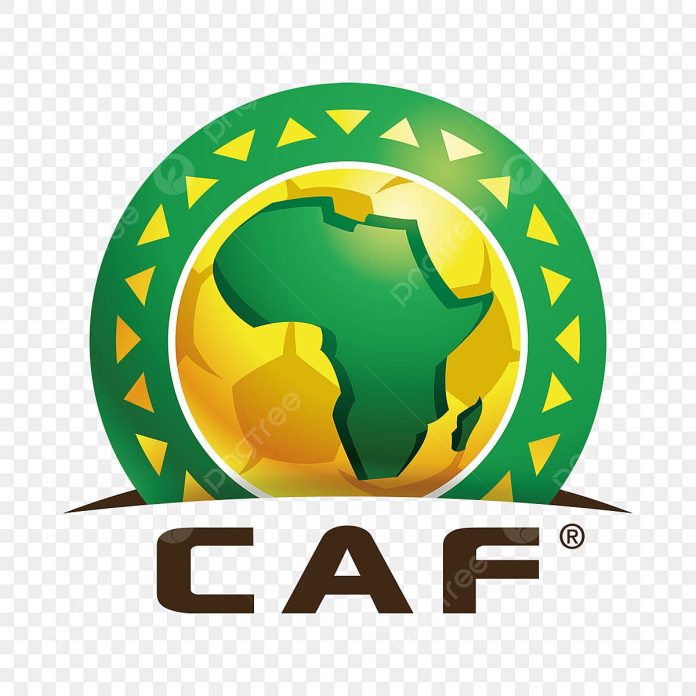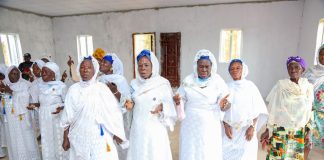Opinion by Monday Alade
The world watched with disbelief as the Libyan government, in a gross violation of human rights, subjected Nigerian soccer players and delegates to unimaginable harassment and what can only be described as an act of hostage taking and terrorism. In what should have been a peaceful journey to an African Cup of Nations (AFCON) qualifier, Nigerian athletes and officials found themselves held hostage by Libyan government, denied food, communication access, and basic rights. This egregious act of cruelty and terrorism has shaken the foundation of African sports diplomacy, but with CAF announcement on Tuesday evening, there seems to be a glimmer of hope. For the first time, a regional governing body has taken a decisive and commendable stand in defense of human dignity and sportsmanship on African soil. CAF’s bold decision to cancel the match between Nigeria and Libya on Tuesday’s evening not only reinforces its commitment to the values of fairness but sends a strong message that human rights cannot be trampled upon in the name of competition.
This incident is more than just a sports-related grievance. It goes beyond the boundaries of the football field and taps into deep-seated issues of diplomatic relations, human security, and respect for international protocols. By diverting the Nigerian Super Eagles’ plane to an unknown location, refusing them access to food, water, or communication, and effectively holding them hostage, Libyan government committed an undeniable act of terrorism. The Nigerian government’s call for justice should have come swiftly, but thanks to CAF’s timely intervention, the actions of the Libyan officials are now under the global spotlight.
CAF’s decision to cancel the match represents a historic moment where an African regional regulatory body stood firm, not only in upholding its own laws but in sending a powerful message about the sanctity of human rights. For far too long, African athletes, especially from sub-Saharan regions, have faced xenophobia, harassment, and even violence in some Arab countries. Libya’s treatment of the Nigerian players is just the latest in a long line of injustices. But this time, we are not silent.
The cancellation of the match by CAF transcends football, it is a clear stance on human rights, decency, respect, human dignity, diplomacy, international relations, and the integrity of African sports. Libya’s mistreatment of Nigerian players undermines the unifying power of sports. It was an attack on Nigeria’s sovereignty and violation of international norms. CAF’s decisive action sends a strong message to all African nations that human rights must be protected and that athletes should never be pawns in political games. This move restores justice, challenges systemic abuse, and highlights the critical role of sports as a platform for peace and unity. As the world watches, CAF has set a new standard, affirming that terrorism and human rights violations have no place in African football or global competition.
In conclusion, CAF’s bold stand is not only a victory for sportsmanship but also a significant step forward for human rights. However, this must not be the end of the matter. Libya should face severe penalties for its actions, including a ban from future competitions and financial reparations to Nigeria. These damages should cover the physical and emotional toll on the Nigerian athletes who were held hostage, as well as the costs incurred by the Nigerian delegation. This will serve as a strong deterrent against any future violations of this nature.
Nigeria, alongside the international community, must now push for stronger safeguards to ensure that human rights and the principles of fairness and diplomacy remain at the core of African sports. This incident cannot be overlooked; it should be a turning point that strengthens accountability in African football and sets a precedent that such mistreatment will not go unpunished.
Opinion by Monday Alade
The world watched with disbelief as the Libyan government, in a gross violation of human rights, subjected Nigerian soccer players and delegates to unimaginable harassment and what can only be described as an act of hostage taking and terrorism. In what should have been a peaceful journey to an African Cup of Nations (AFCON) qualifier, Nigerian athletes and officials found themselves held hostage by Libyan government, denied food, communication access, and basic rights. This egregious act of cruelty and terrorism has shaken the foundation of African sports diplomacy, but with CAF announcement on Tuesday evening, there seems to be a glimmer of hope. For the first time, a regional governing body has taken a decisive and commendable stand in defense of human dignity and sportsmanship on African soil. CAF’s bold decision to cancel the match between Nigeria and Libya on Tuesday’s evening not only reinforces its commitment to the values of fairness but sends a strong message that human rights cannot be trampled upon in the name of competition.
This incident is more than just a sports-related grievance. It goes beyond the boundaries of the football field and taps into deep-seated issues of diplomatic relations, human security, and respect for international protocols. By diverting the Nigerian Super Eagles’ plane to an unknown location, refusing them access to food, water, or communication, and effectively holding them hostage, Libyan government committed an undeniable act of terrorism. The Nigerian government’s call for justice should have come swiftly, but thanks to CAF’s timely intervention, the actions of the Libyan officials are now under the global spotlight.
CAF’s decision to cancel the match represents a historic moment where an African regional regulatory body stood firm, not only in upholding its own laws but in sending a powerful message about the sanctity of human rights. For far too long, African athletes, especially from sub-Saharan regions, have faced xenophobia, harassment, and even violence in some Arab countries. Libya’s treatment of the Nigerian players is just the latest in a long line of injustices. But this time, we are not silent.
The cancellation of the match by CAF transcends football, it is a clear stance on human rights, decency, respect, human dignity, diplomacy, international relations, and the integrity of African sports. Libya’s mistreatment of Nigerian players undermines the unifying power of sports. It was an attack on Nigeria’s sovereignty and violation of international norms. CAF’s decisive action sends a strong message to all African nations that human rights must be protected and that athletes should never be pawns in political games. This move restores justice, challenges systemic abuse, and highlights the critical role of sports as a platform for peace and unity. As the world watches, CAF has set a new standard, affirming that terrorism and human rights violations have no place in African football or global competition.
In conclusion, CAF’s bold stand is not only a victory for sportsmanship but also a significant step forward for human rights. However, this must not be the end of the matter. Libya should face severe penalties for its actions, including a ban from future competitions and financial reparations to Nigeria. These damages should cover the physical and emotional toll on the Nigerian athletes who were held hostage, as well as the costs incurred by the Nigerian delegation. This will serve as a strong deterrent against any future violations of this nature.
Nigeria, alongside the international community, must now push for stronger safeguards to ensure that human rights and the principles of fairness and diplomacy remain at the core of African sports. This incident cannot be overlooked; it should be a turning point that strengthens accountability in African football and sets a precedent that such mistreatment will not go unpunished.















